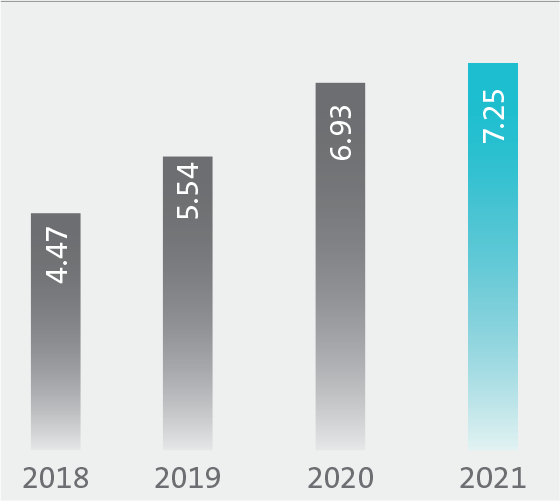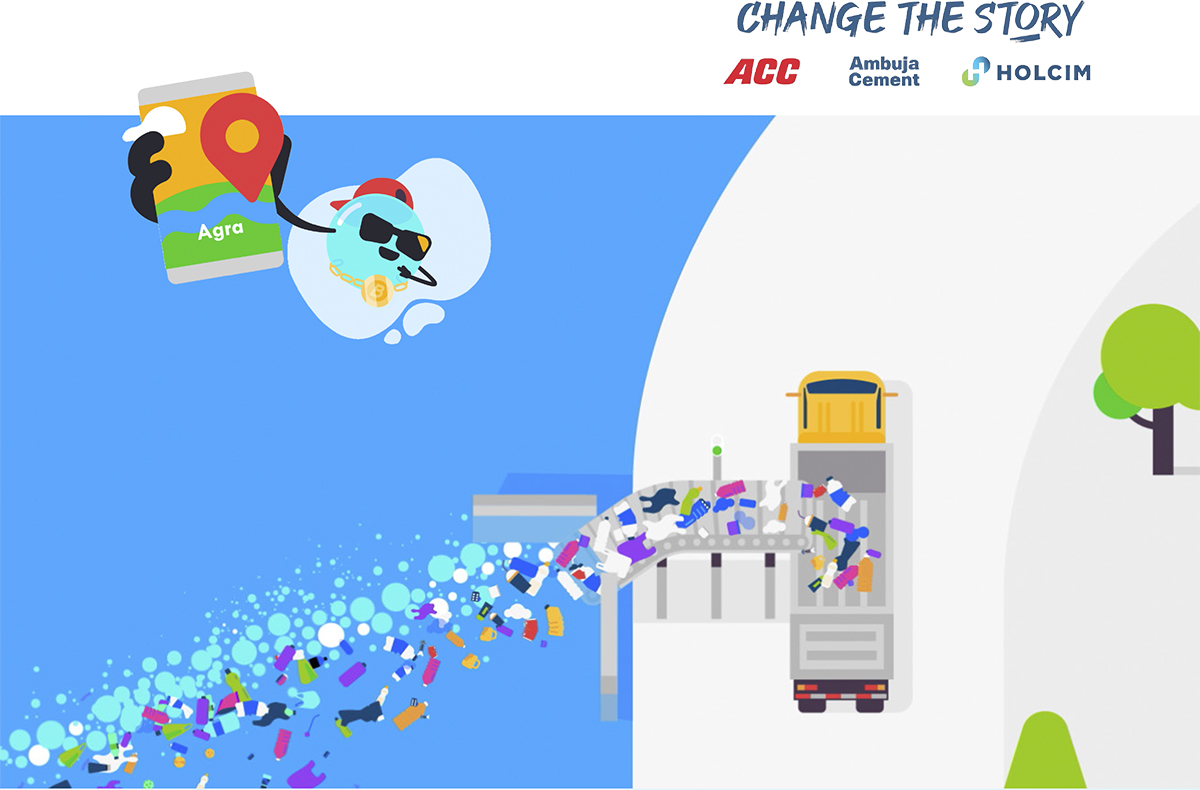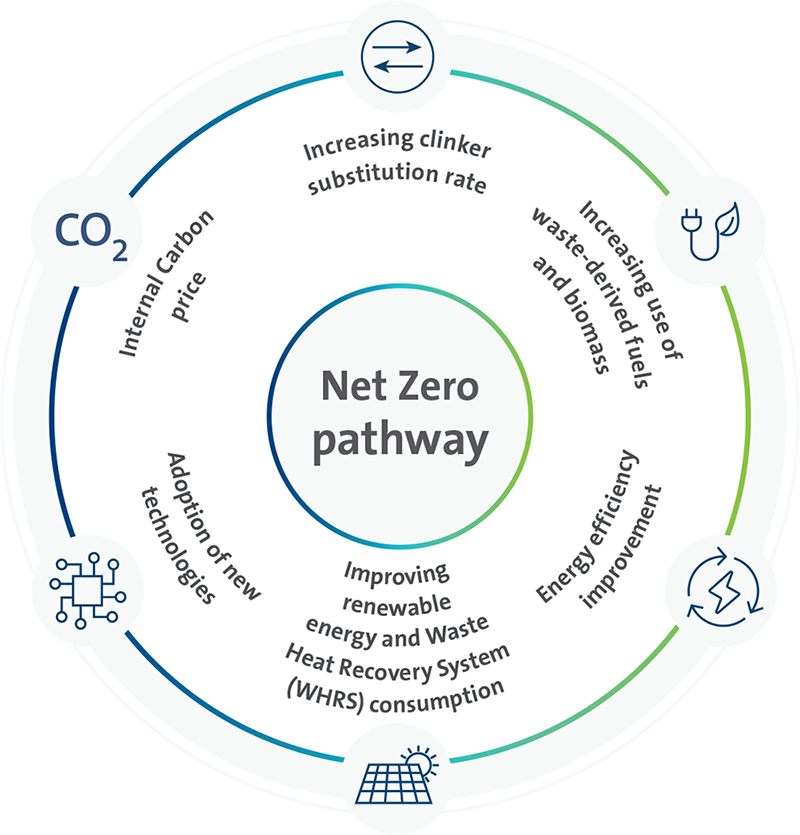Net Zero pathway
Committing to landmark
climate action
In 2021, we became the first and only Indian cement company to sign the Net Zero pledge. We had our carbon emission reduction targets for 2030 validated by the Science Based Targets Initiative (SBTi). We aim to contribute towards creating a carbon neutral society by 2050 while optimising our value chain practices to progressively reduce environmental impact.
Following in the footsteps of the Holcim Group, which became the first global building materials company to sign the Business Ambition for 1.5°C pledge in 2020, we took up the challenge in 2021. We partnered with the Carbon Disclosure Project (CDP) India's SBTi incubator programme to develop our science-based targets.
Our aim as per the Net Zero pledge
21.3%
Reduction in
Scope 1 GHG emissions per tonne
of cementitious material by 2030
from a 2018 base year
48.4%
Reduction in
Scope 2 GHG emissions per tonne
of cementitious material by 2030
from a 2018 base year
These targets are consistent with reductions required to keep global warming to well below 2°C. The target boundary includes biogenic emissions and removals from bioenergy feedstocks.
Clinker factor
(%)

Thermal Substitution
Rate (TSR) (%)

Renewable energy in total power consumption (%)

Collecting and utilising
waste from the rivers

First time in India: Bubble Barrier technology to utilise plastic waste from rivers
Geocycle India, our in-house waste management arm, is implementing the smart and non-invasive Bubble Barrier technology to collect and co-process the plastic waste that clogs India’s rivers. In support of the Plasticfree Agra mission, Geocycle commissioned its first pilot project in April 2021 in Agra’s Mantola Canal, which carries 40% of the city’s wastewater. Apart from its historical significance, Agra was also chosen because as a tourism hotspot, it faces a serious challenge of plastic pollution.
Since its inception, the project has prevented 500 tonnes of plastic waste from leaking into Yamuna. The project is expected to collect 2,400 tonnes of plastic from the canal every year. Following the project’s success in Agra, we are looking at replicating the project at other major rivers.

